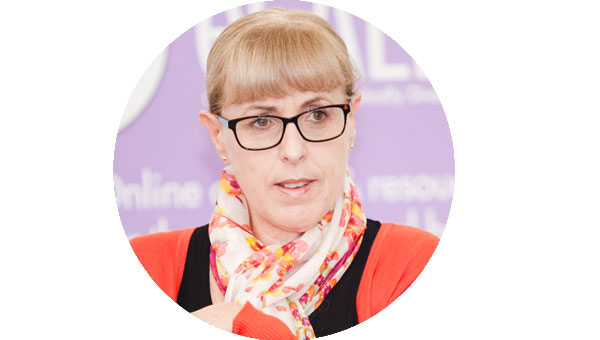Kōrero Mai (Talk to Me) is the co-design of a patient, family and whānau-led escalation system for deteriorating patients at Waitemata DHB
Opportunity
When a patient or their loved one is unwell, it can be difficult for them to communicate to staff about what is happening, or staff may not understand how worried they are about their health. An 'escalation system' is a process where patients, family or whānau can escalate their concerns about their or their loved one’s health to another staff member, if they feel they are not getting the care they need. Delayed recognition of, or response to, patient deterioration is an adverse event, and, although staff may always be doing their best, difficulties with communication can arise due: to power differentials; health literacy; being afraid to speak up; or cultural norms.
Communication problems are endemic in health services, with 42% of complaints to the Health and Disability Commissioner referencing communication problems in New Zealand. Overseas models cite that the most common reason for patient, family or whānau-led escalations are due to breakdowns in communication with staff.
The purpose of this co-design project is to develop a patient, family and whānau-led escalation system for patients whose condition is deteriorating. This means that the experiences of patients, family and whānau affected by deterioration or poor communication will be investigated and used to co-design solutions with consumers.
Kōrero Mai is one of four work streams (projects) that form part of a Five-Year National Adult Patient Deterioration Programme (July 2016-July 2021), commissioned by the Health Quality and Safety Commission (HQSC). The other work streams will focus on systems within the hospital that play a role in recognising and responding to patient deterioration, and are outside the scope of this project.

Aim
The aim of Kōrero Mai is to design, develop and test a patient, family and whānau-led escalation system for deteriorating patients by 30 June 2018.
Intervention
Kōrero Mai will use a co-design process to develop a patient, family and whānau-led escalation system for patients whose condition is deteriorating.
Co-Design is an iterative process where consumers and staff work together to understand consumers’ experience, and work to design and test solutions together.
The nature of co-design means that the intervention is designed in collaboration between consumers and staff, as they move through each element of the co-design process. Information collected during the ‘explore’ phase helps shape what is developed and then tested in a live environment. The intervention structure and format is therefore as yet unknown.

Impact
Qualitative and quantitative methods will be employed to assess ‘current state’ for the need for patient, family or whānau-led escalation in the hospital. Additional measures will be used to assess the impact of any co-designed solution, to capture how aware patients, family and whānau are aware of the availability of such a service, how often it is used, what for, and how it might improve patient outcomes.
Where to
Kōrero Mai is progressing under the mentorship of Dr Lynne Maher, Director of Innovation, Ko Awatea, sponsored by the HQSC. The co-design working party attends monthly webinars with three other DHB sites across the country, who are running their own Korero Mai co-design project.
Webinars are an opportunity to sharing project updates and lessons learned, as well as receiving information and instructions from our project mentor. Two full day workshops are also held during the project year. A project workbook is maintained by the project manager, submitted to the HQSC mid-way and at conclusion of the project, and includes case studies.
Team Members
Sponsor
- David Price, Director of Patient Experience
Project Team
- Olivia Anstis, i3 Innovation + Improvement Project Manager
- Jeanette Bell, i3 Innovation + Improvement Project Manager
- Trenna Wilkinson, Charge Nurse Manager
- Angela Nightingill, Charge Nurse Manager
- Shelley Vaudrey, Charge Nurse Manager
- Lev Zhuravsky, Operations Manager - Waitemata Central
